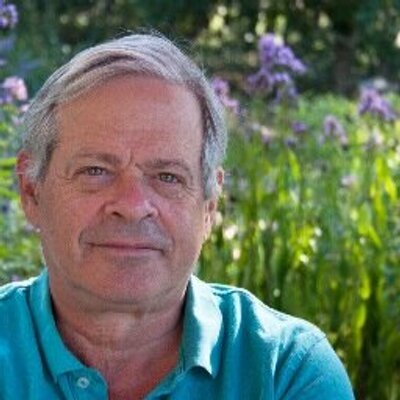
I've never liked the word "restrictionist" to identify those of us who not only think that immigration should be limited in the national interest but also compound the insult to inclusiveness by pointing out that that limits that go unenforced are a form of fakery. "Restrictionist" is a distinctly non-euphonious word. It sounds harshly Teutonic, though its origins are in the Latin restringere, which means "to bind." But I've accepted it with a shrug as concise and functional.
Moreover "restriction" has been playing a role in the immigration drama since before 1894, when the Immigration Restriction League was founded in Boston by three Harvard graduates, including one who would become Harvard's first professor of climatology. But as Daniel Okrent makes clear in The Guarded Gate, those who were alarmed at that era's influx of non-Anglo-Saxon types didn't needed a weatherman to know which way the wind was blowing. What many thought they needed was the odious form of restrictionism that reached the apex of its influence in 1924, when Congress enacted the national origins quota system. When President Calvin Coolidge signed the bill, also called the Immigration Restriction Act and the Johnson-Reed Act, he declared, "America must be kept American. For this purpose, it is necessary to continue a policy of restricted immigration."
The law was aimed primarily at the intense immigration of the southern and eastern European Catholics and Jews who had been coming to the U.S. by their annual tens of thousands since the 1880s. As someone whose maternal grandparents include a Jewish immigrant from Bohemia and an Catholic immigrant from southern Italy – not to mention my paternal great-great grandfather from Germany and others from England so far back we've lost track – I couldn't help but feel anger and repugnance at those who found the new Americans so repellent, so irreversibly un-American. I also felt compassion for my Italian great grandfather Carlo, who changed his name to Charles, and for my Jewish grandfather, who changed his surname from Fletcher (or Fleischer) to Clemmens. Both men, no doubt, wanted to be accepted in their new country.
The Guarded Gate tells a story that every restrictionist should understand, not only because it is a vivid history of this era of restriction but also because many idealists and activists will use it as a club to condemn us. They will cite the book to say, as many have said for years, that we should be excluded from the national discussion because our ideology is rooted in the hatred, bigotry, xenophobia that Okrent describes so well. By grounding his work in thorough research, and by writing with the restraint and grace and occasional irony that are Okrent trademarks, he lets the story tell its own sad and often shocking story.
The story is not entirely new. As John Higham, the late, great immigration historian wrote, eugenics provided a scientific veneer for the argument that beginning in the 1880s racially inferior immigrants from southern and eastern Europe were "polluting the nation's bloodstream."
But Okrent's account provides plenty of justification for his description of eugenics as a "perverse science," embraced and propagated by many New England patricians, who believed their sense of entitlement was justified by the genetically determined superiority of their caste. Consider just a few of Okrent's self-anointed Uebermenschen:
--Prescott Farnsworth Hall, one of the founders of the Immigration Restriction League, asked in 1894: "Shall we permit these inferior races to dilute the thrifty, capable Yankee blood?"
--Francis Walker, known to history as the president of MIT, is remembered in immigration infamy as the man who invoked Darwin's theory of natural selection as he called the new immigrants "beaten men from beaten races, representing the worst failures in the struggle for existence"
--Joe Lee, a beloved Boston philanthropist and rabid anti-Semite who financed the Immigration Restriction League for many years, flatly declared the fundamental tenet of his restrictionist creed: "I believe in exclusion by race."
--Henry Cabot Lodge, the paragon of Boston's Brahmin class, pursued immigration with the mania of Ahab, stoked by ferocious determination to "guard our civilization against an infusion which seems to threaten deterioration."
--Woodrow Wilson, an early adopter of eugenicist doctrine that was in vogue among in fellow members of the high-brow professoriate, scorned southern Italians as "sordid and hapless." But that was before Wilson awoke to the electoral power that Italians had gained in the early 1900s, transforming them in his eyes to "the great people of Italy." Okrent says Lodge was struck from his restrictionist high horse on the road to electoral reality that "led from the cloistered academy to the avid vote-chasing tumult of a national political campaign."
Okrent's chilling conclusion is that the 1924 Immigration act blocked the escape of many thousands, perhaps millions of potential immigrants, including Jews and others who fell into the jaws of Hitler's mass murder machine. He demonstrates that Hitler's "final solution" was strongly influenced by the eugenic notions that first took shape in Europe and then sprouted in the rocky soil of New England. Today's restrictionists don't need to feel guilty by association with the Holocaust. But we should always be respectful of the sensibilities of those who reject any form of restriction, indeed any principle of restraint, because they think that to do otherwise would be to dishonor the memories of those who were blocked from coming to the United States.
Postscript: In my next post, I will explain why I think Okrent should have given more emphasis to the non-racist reasons for wanting to limit immigration in the years that preceded the 1924 legislation.
